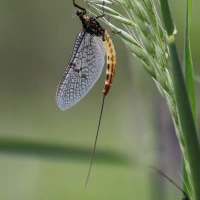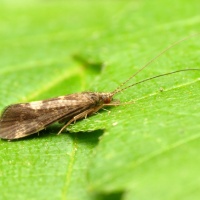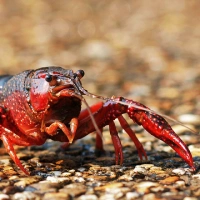The IUCN Freshwater Plant Specialist Group

River Water-dropwort. A species that is Near Threatened outside of populations in rivers and streams in the UK and Ireland. Image: R Lansdown
The IUCN Freshwater Plant Specialist Group is a global network of scientists and researchers with an interest in the conservation of wetland plants. It was formed initially with the support of the Fondation Tour du Valat and Plantlife under the umbrella of the Species Survival Commission (SSC) of the International Union for Conservation of Nature (IUCN).
The Freshwater Plant Specialist Group is one of around 120 Specialist Groups coordinated by the IUCN Species Survival Commission. These are communication networks of people with a common interest, which exist to support and further the conservation of the organisms for which they are responsible. Each Group has a Chair (responsible for the overall coordination of the Group), a Red List Authority (responsible for the coordination of IUCN Red List assessments of extinction risk) and members.
The Chair of the Group, Richard Lansdown (whose fantastic photographs illustrate this piece) explains more:
“The Freshwater Plant Specialist Group was initiated after discussion between Will Darwall of the IUCN Freshwater Biodiversity Unit and me around a meeting of the IUCN Freshwater Conservation Steering Committee on which we both serve in June 2011. IUCN had long been looking to establish a freshwater plant specialist group but was looking for the right chair.
My proposal to establish the group, supported by the Fondation Tour du Valat and PlantLife was unanimously agreed at a meeting of the IUCN Council in June 2011. I was initially reluctant to commit to establishing the group but was convinced by the people I met at the second meeting of the IUCN SSC Specialist Group Chairs in 2012. I formally signed the papers establishing the group in 2013. The Freshwater Plant Specialist Group now has over 140 members in more the 60 countries, with many organisation represented among the members.”
The Freshwater Plant Specialist Group exists to promote and further the conservation of wetland plant species and the habitats upon which they depend. Its aim is to achieve this through a combination of:
- Establishing a database of all aquatic and wetland plants, including vascular plants, bryophytes, lichens and algae that are dependent upon wetlands. The database will store information on the taxonomy, nomenclature and distribution of each species, with the aim that it be improved through review by FPSG members. The foundation of the database has been established with funding from EU Biofresh (Biodiversity of Freshwater Ecosystems) project and work by Nur Ritter.
- Assessment of the conservation status of all wetland-dependent plants using the IUCN Red List categories and criteria.
- Preparation of action plans for the conservation of wetland-dependent plants, initially concentrating on specific regions for which a regional Red List assessment of freshwater-dependent plants has been completed.
- Support for individual projects proposed by the members. This support will mainly take the form of providing information and links to contacts, as well as assistance with preparation of funding proposals.
Richard further outlines the collaborative nature of the Group:
“Although specifically aimed at conservation of wetland-dependent plants, wetland conservation cannot be successful without information on the environment on which the plants depend, or on methods of managing this environment. Therefore, whilst the membership of the group will be dominated by botanists, people with an interest in plants but their main knowledge and experience in other disciplines such as hydrology, geology, geomorphology and water management will also be welcomed as members.”


















